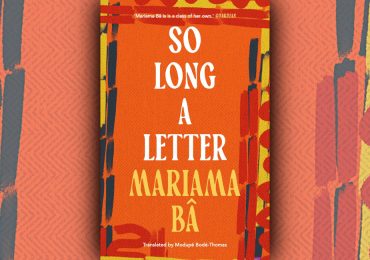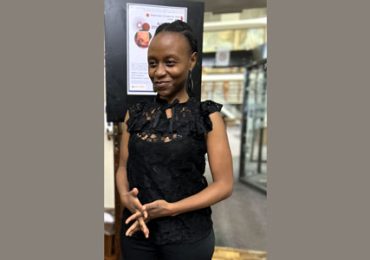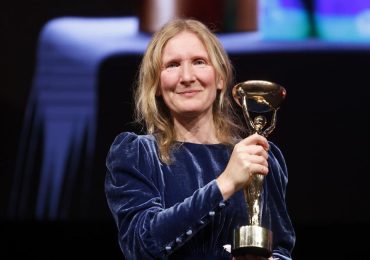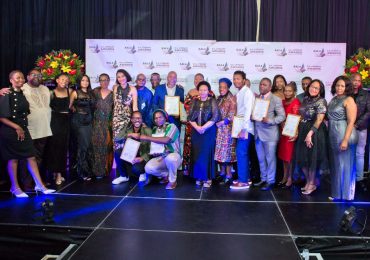Jenny Erpenbeck’s novel Kairos, translated by Michael Hofmann, has been announced as the winner of the 2024 International Booker Prize.
Kairos is described as ‘an intimate and devastating story of the path of two lovers through the ruins of a relationship, set against the backdrop of a seismic period in European history … A meditation on hope and disappointment, [the novel] poses complex questions about freedom, loyalty, love and power.’
The winner was announced by Eleanor Wachtel, chair of the 2024 judges, at a ceremony at London’s Tate Modern art gallery on Tuesday, 21 May.
The International Booker Prize, which celebrates ‘the finest translated fiction from around the world’, is awarded every year for a single book translated into English and published in the United Kingdom or Ireland. It aims to encourage more publishing and reading of translated fiction and to promote the work of translators.
The £50,000 prize money (about R1,2 million) will be split between Erpenbeck and Hofmann, as the author and translator are given equal recognition for the prize.
Erpenbeck was born in East Berlin in 1967, and is an opera director, playwright and award-winning novelist. She was longlisted for the prize in 2018, and becomes the first German writer to win it. Hofmann is the first male translator to win the award.
Wachtel said:
‘In luminous prose, Jenny Erpenbeck exposes the complexity of a relationship between a young student and a much older writer, tracking the daily tensions and reversals that mark their intimacy, staying close to the apartments, cafés, and city streets, workplaces and foods of East Berlin. It starts with love and passion, but it’s at least as much about power, art and culture. The self-absorption of the lovers, their descent into a destructive vortex, remains connected to the larger history of East Germany during this period, often meeting history at odd angles.
‘Michael Hofmann’s translation captures the eloquence and eccentricities of Erpenbeck’s writing, the rhythm of its run-on sentences, the expanse of her emotional vocabulary.
‘What makes Kairos so unusual is that it is both beautiful and uncomfortable, personal and political. Erpenbeck invites you to make the connection between these generation-defining political developments and a devastating, even brutal love affair, questioning the nature of destiny and agency. Like the GDR, it starts with optimism and trust, then unravels.’
The judges, Wachtel, Natalie Diaz, William Kentridge, Romesh Gunesekera and Aaron Robertson, read 149 books for the award this year, the largest number ever submitted.
The other finalists for the 2024 prize were Not a River by Selva Almada, translated from Spanish by Annie McDermott; Crooked Plow by Itamar Viera Junior, translated from Portuguese by Johnny Lorenz; Mater 2-10 by Hwang Sok-yong, translated from Korean by Sora Kim-Russell and Youngjae Josephine Bae; What I’d Rather Not Think About by Jente Posthuma, translated from Dutch by Sarah Timmer Harvey; and The Details by la Genberg, translated from Swedish by Kira Josefsson.





